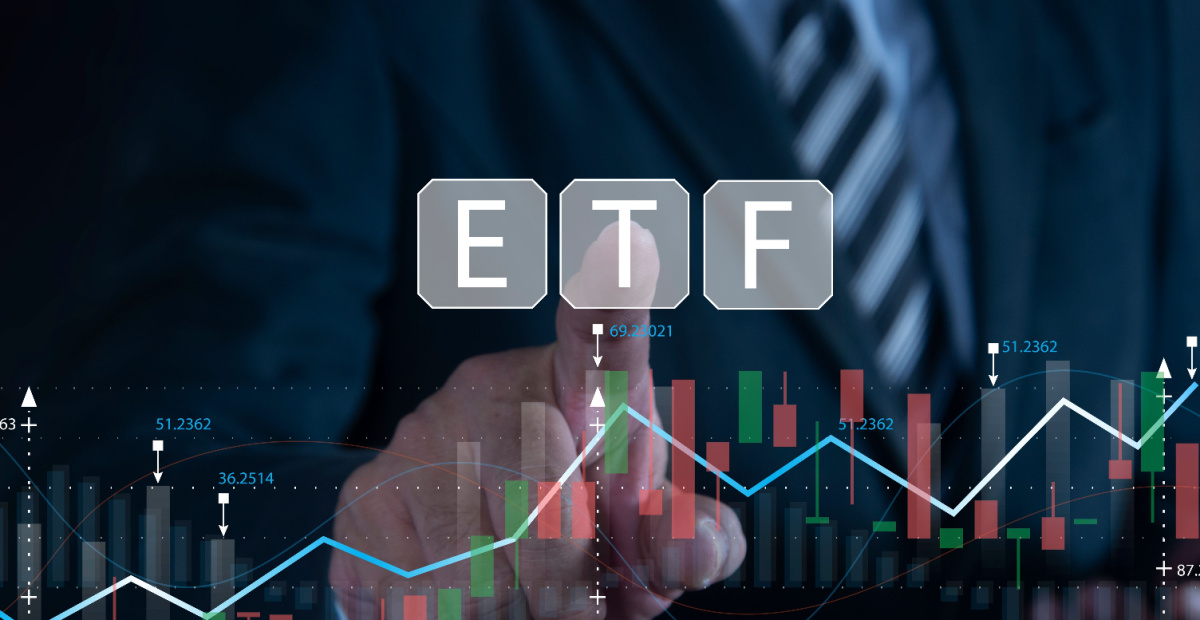A bumper year for ETF, minerals stock trades on ‘low-cost’ broker platform

Exchange Traded Funds (ETFs) were the most popular investment vehicle on the Selfwealth broker platform last financial year, representing more than one-quarter of all trades on the platform.
By volume, ETFs made up 26.0% of all trades, as well as commanding the highest buying conviction by far, with a buy-to-sell ratio of 69.6%.
“With nearly seven out of every ten ETF trades being ‘buys’, this result is indicative of long-term interest in ETFs, whereas traditional market sectors were more susceptible to short-term trading activity,” Selfwealth wrote in its latest Sector Trading Activity report.
ETFs were classified in the report as a separate ‘sector’, despite the investment vehicle spanning a number of market sectors, industries, and thematics, Selfwealth noted.
Perhaps unsurprisingly, the two largest sectors by market cap listed on the Australian Securities Exchange (ASX) – financials and materials – were also the two sectors that drew the greatest volume of trading activity on the platform.
Materials shares accounted for 25.1% of all trades on the platform in FY24, only slightly behind the total volume of trades relating to ETFs. Selfwealth recorded a 55.5% buy-to-sell ratio on materials stocks.
Trading interest in materials shares was largely associated with iron ore and lithium mining entities, with the latter gaining particular traction with the growing interest in renewables technologies.
Among the iron ore power players include BHP (ASX: BHP), Fortescue (ASX: FMG), and Rio Tinto (ASX: RIO), with each trading on high dividend yields, Selfwealth noted. Among the popular lithium extractors were Pilbara Minerals (ASX: PLS), Core Lithium (ASX: CXO), and Liontown Resources (ASX: LTR), which “garnered publicity on account of the role lithium is expected to play as part of a long-term transition to renewables”.
Selfwealth noted in its commentary: “Commodity price volatility also played a role in driving trading activity, with lithium prices at one stage circling multi-year lows, and iron ore prices at an 11-month low during the financial year.”
Meanwhile, more than one in ten trades on the platform, or 10.5%, in FY24 involved financials stocks.
On the ongoing popularity of financial services stocks, Selfwealth wrote: “Financials performed exceptionally well in FY24, largely on the back of a broad rally in bank shares like Commonwealth Bank (ASX: CBA), Bank of America (NYSE: BAC), and several others.”
“Buying conviction within the sector, as measured by the buy-to-sell ratio of 53.5%, trailed most other sectors, likely on account of profit taking following the sector’s strong gains.
Tech, health & energy soar, industrials & real estate lose appeal
The tech sector represented 8.1% of all Selfwealth trades across the financial year, with themes like semiconductors, generative artificial intelligence (AI), cloud computing, hardware and equipment, bitcoin, as well as digital advertising among the most popular areas of exposure.
Chasing the ‘Magnificent 7’ boom, US shares contributed to a significantly higher percentage of overall trading activity for this sector versus others, Selfwealth noted, with 43.6% of all tech trades involving US-listed shares.
Meanwhile, in the consumer discretionary space, Tesla accounted for nearly one in three sector trades involving US shares.
With investors maintaining their interest in pharmaceuticals, biotechnology, and life sciences stocks, healthcare stocks made up 6.9% of all Selfwealth trades in FY 23/24. They also drew the highest buying conviction of any traditional sector, with a buy-to-sell ratio of 58.6%.
Overall, energy shares represented 6.1% of all Selfwealth trades throughout the period. Aside from Woodside Energy (ASX: WDS), which was the most actively traded share in the energy space, users also showed strong interest in two top themes in this sector – coal and uranium.
Uranium prices soared to a near 17-year high in FY24, while elevated trading interest in coal may be linked with an expected increase in global coal demand courtesy of China and India, according to Selfwealth.
Elsewhere, trade volumes in industrials, consumer staples, communication services, real estate, and utilities shares were relatively modest, collectively representing just 11.0% of all Selfwealth trades for the 12 months ending June 30, 2024.











So someone in India who isn't licensed provided personalised financial advice and ASIC's response is to tell them to be…
Seeking Regulatory relief from Regulation. Industry Super Funds want to control $1.6 Trillion $$$ and ever growing with almost zero…
If Kalkine has officially been released and operates under a legitimate license to provide general advice, it raises an important…
Not sure what they're seeking regulatory relief from. In my view is they get tickled with a warm lettuce leaf…
Will they ever be named & shamed, fined and banned for life ??? Unlikely hey ASIC & APRA, especially for…